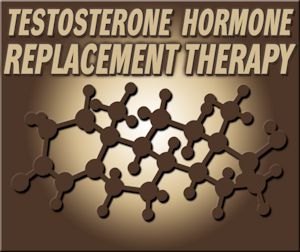Introduction
Erectile dysfunction (ED) is a prevalent issue among American males, affecting millions and significantly impacting quality of life. While physiological factors such as cardiovascular health and diabetes are well-known contributors, the role of psychological and relational dynamics, particularly communication within relationships, remains underexplored. This article delves into a comprehensive survey-based study involving over 1300 couples to examine the intricate relationship between communication patterns and the incidence of ED in American men.
Study Methodology and Demographics
The study was conducted using a cross-sectional survey approach, targeting heterosexual couples where the male partner was aged between 30 and 70 years. Participants were recruited through various channels, including online platforms and healthcare facilities across the United States. The survey included validated scales to assess communication quality and the International Index of Erectile Function (IIEF) to evaluate ED severity. The sample was diverse in terms of ethnicity, socioeconomic status, and geographic location, ensuring a broad representation of the American male population.
Findings: Communication and ED Correlation
The results of the study revealed a significant correlation between poor communication within relationships and higher incidences of ED. Couples who reported lower levels of open and honest communication were more likely to have male partners experiencing ED. Specifically, 68% of men in relationships characterized by poor communication reported moderate to severe ED, compared to only 24% in relationships with effective communication.
Mechanisms Linking Communication to ED
Several mechanisms may explain the link between communication and ED. Firstly, poor communication can lead to increased stress and anxiety, which are known to negatively impact sexual function. Secondly, ineffective communication may result in unresolved conflicts and emotional distance, reducing intimacy and sexual desire. Lastly, the lack of open dialogue about sexual health and needs can hinder the ability to address ED early, exacerbating the condition.
Implications for Clinical Practice
These findings underscore the importance of addressing relational dynamics in the management of ED. Healthcare providers should consider incorporating communication assessments and interventions into their treatment plans. Couples therapy and communication workshops may be beneficial in improving relationship quality and, consequently, sexual health. Moreover, encouraging open discussions about sexual health can empower men to seek timely medical intervention, potentially improving outcomes.
Public Health and Policy Considerations
From a public health perspective, initiatives aimed at promoting healthy communication within relationships could have a positive impact on reducing ED prevalence. Educational campaigns and community programs that focus on relationship skills and sexual health literacy may be effective in fostering environments conducive to better sexual health. Policymakers should consider supporting such initiatives to address the broader social determinants of health.
Limitations and Future Research
While the study provides valuable insights, it is not without limitations. The cross-sectional design limits the ability to infer causality, and self-reported data may be subject to biases. Future research should employ longitudinal designs to better understand the temporal relationship between communication and ED. Additionally, exploring the impact of communication in diverse relationship types, including same-sex couples, could provide a more comprehensive understanding of this issue.
Conclusion
The study of over 1300 American couples highlights the significant impact of relationship communication on the incidence of erectile dysfunction. By fostering open and effective communication, couples can potentially mitigate the risk of ED and enhance overall relationship satisfaction. As the medical community continues to explore the multifaceted nature of ED, integrating relational health into treatment strategies will be crucial in addressing this widespread issue among American males.
Contact Us Today For A Free Consultation

- Experiencing Erectile Dysfunction? Be on the Lookout for Signs of a Heart Attack [Last Updated On: February 27th, 2025] [Originally Added On: October 6th, 2021]
- Breaking Free: Mastering Male Potency and Conquering Erectile Dysfunction [Last Updated On: February 25th, 2025] [Originally Added On: February 25th, 2025]
- Defying Stigmas and Breaking Boundaries: Overcoming Erectile Dysfunction [Last Updated On: February 26th, 2025] [Originally Added On: February 26th, 2025]
- Unveiling the Enigma: Decoding the Chemical Pathways of Erectile Dysfunction [Last Updated On: February 27th, 2025] [Originally Added On: February 27th, 2025]
- A New Perspective: Thriving Beyond Erectile Dysfunction [Last Updated On: February 28th, 2025] [Originally Added On: February 28th, 2025]
- Dispelling Misunderstandings: A Comprehensive Look at Erectile Dysfunction [Last Updated On: February 28th, 2025] [Originally Added On: February 28th, 2025]
- The Unseen Dimension: Exploring the Psychological Aspects of Erectile Dysfunction [Last Updated On: March 1st, 2025] [Originally Added On: March 1st, 2025]
- Navigating the Journey: A Comprehensive Guide to Managing Erectile Dysfunction in American Males [Last Updated On: March 2nd, 2025] [Originally Added On: March 1st, 2025]
- Introduction Into Erectile Dysfunction Medicine [Last Updated On: March 2nd, 2025] [Originally Added On: March 2nd, 2025]
- Advancements in Modern Medical Interventions for Enhancing Libido and Sexual Health [Last Updated On: March 3rd, 2025] [Originally Added On: March 3rd, 2025]
- Understanding and Managing Erectile Dysfunction: Treatments and Causes [Last Updated On: March 4th, 2025] [Originally Added On: March 4th, 2025]
- Exploring the Emotional Impact of Erectile Dysfunction on Men and Relationships [Last Updated On: March 5th, 2025] [Originally Added On: March 5th, 2025]
- Understanding Erectile Dysfunction: Causes, Medications, and Impact on Quality of Life [Last Updated On: March 6th, 2025] [Originally Added On: March 6th, 2025]
- The Evolution of Erectile Dysfunction Treatments: From Ancient Remedies to Modern Medicine [Last Updated On: March 7th, 2025] [Originally Added On: March 7th, 2025]
- Revitalizing Intimacy: Strategies for Overcoming Erectile Dysfunction in American Males [Last Updated On: March 8th, 2025] [Originally Added On: March 8th, 2025]
- Revolutionizing Erectile Dysfunction Treatment: Innovations, Technologies, and Future Trends [Last Updated On: March 8th, 2025] [Originally Added On: March 8th, 2025]
- Lifestyle Changes to Combat Erectile Dysfunction in American Men [Last Updated On: March 9th, 2025] [Originally Added On: March 8th, 2025]
- The Critical Role of Blood Flow in Erectile Dysfunction: Vascular Health Insights [Last Updated On: March 9th, 2025] [Originally Added On: March 9th, 2025]
- Unveiling the Testosterone-Erectile Dysfunction Connection: A Comprehensive Insight for American Males [Last Updated On: March 12th, 2025] [Originally Added On: March 12th, 2025]
- Overcoming Erectile Dysfunction: Causes, Innovative Treatments, and Inspiring Recovery Stories [Last Updated On: March 13th, 2025] [Originally Added On: March 13th, 2025]
- Unveiling the Truth: Dispelling Myths About Erectile Dysfunction in American Men [Last Updated On: March 15th, 2025] [Originally Added On: March 15th, 2025]
- Exploring Alternative Therapies for Erectile Dysfunction in American Males [Last Updated On: March 19th, 2025] [Originally Added On: March 19th, 2025]
- Telemedicine Revolutionizes Erectile Dysfunction Care: Benefits, Challenges, and Future Prospects [Last Updated On: March 19th, 2025] [Originally Added On: March 19th, 2025]
- Boosting Libido and Combating ED: Diet and Exercise Strategies for American Males [Last Updated On: March 19th, 2025] [Originally Added On: March 19th, 2025]
- Managing Erectile Dysfunction: A Holistic Approach to Sexual Health and Wellness [Last Updated On: March 19th, 2025] [Originally Added On: March 19th, 2025]
- Stress, Sleep, and Erectile Dysfunction: Understanding the Interconnected Impact on Men's Sexual Health [Last Updated On: March 20th, 2025] [Originally Added On: March 20th, 2025]
- Global Approaches to Managing Erectile Dysfunction: Insights for American Men [Last Updated On: March 20th, 2025] [Originally Added On: March 20th, 2025]
- Erectile Dysfunction: Physiological Roots and Cultural Impacts on American Males [Last Updated On: March 20th, 2025] [Originally Added On: March 20th, 2025]
- Navigating Erectile Dysfunction: Communication, Causes, and Treatment for Couples [Last Updated On: March 21st, 2025] [Originally Added On: March 21st, 2025]
- Erectile Dysfunction: Understanding, Treating, and Overcoming Stigma in American Men [Last Updated On: March 21st, 2025] [Originally Added On: March 21st, 2025]
- Revolutionizing ED Therapy: Advances in Pharmacology, Technology, and Personalized Medicine [Last Updated On: March 21st, 2025] [Originally Added On: March 21st, 2025]
- Natural Remedies and Lifestyle Changes for Managing Erectile Dysfunction in American Men [Last Updated On: March 21st, 2025] [Originally Added On: March 21st, 2025]
- Erectile Dysfunction: A Critical Indicator of Cardiovascular Health in American Men [Last Updated On: March 21st, 2025] [Originally Added On: March 21st, 2025]
- Erectile Dysfunction and Blood Vessel Health: Insights for American Men [Last Updated On: March 22nd, 2025] [Originally Added On: March 22nd, 2025]
- Performance Anxiety and ED: Breaking the Cycle, Restoring Confidence [Last Updated On: March 22nd, 2025] [Originally Added On: March 22nd, 2025]
- Exploring Erectile Dysfunction: Treatments from Medications to Lifestyle Changes [Last Updated On: March 22nd, 2025] [Originally Added On: March 22nd, 2025]
- Erectile Dysfunction: Debunking Myths, Understanding Causes, and Exploring Treatment Options [Last Updated On: March 22nd, 2025] [Originally Added On: March 22nd, 2025]
- Celebrity Stories Break Silence on Erectile Dysfunction, Boost Awareness and Treatment [Last Updated On: March 23rd, 2025] [Originally Added On: March 23rd, 2025]
- Exercise: A Key Strategy for Managing Erectile Dysfunction in American Males [Last Updated On: March 23rd, 2025] [Originally Added On: March 23rd, 2025]
- Nerve Damage and Erectile Dysfunction: Causes, Diagnosis, and Treatment Options [Last Updated On: March 23rd, 2025] [Originally Added On: March 23rd, 2025]
- Erectile Dysfunction's Impact on Self-Esteem: Strategies for Recovery and Confidence [Last Updated On: March 23rd, 2025] [Originally Added On: March 23rd, 2025]
- Essential Nutrients for Enhancing Sexual Health and Combating Erectile Dysfunction [Last Updated On: March 23rd, 2025] [Originally Added On: March 23rd, 2025]
- Erectile Dysfunction: Treatment Costs, Insurance, and Economic Impact in the US [Last Updated On: March 23rd, 2025] [Originally Added On: March 23rd, 2025]
- Chronic Illness Impact on Sexual Health and ED Management in American Males [Last Updated On: March 23rd, 2025] [Originally Added On: March 23rd, 2025]
- Innovative ED Treatments: Stem Cells, Shockwave, Gene Therapy, and Holistic Approaches [Last Updated On: March 24th, 2025] [Originally Added On: March 24th, 2025]
- Counseling's Vital Role in Managing Erectile Dysfunction: A Holistic Approach [Last Updated On: March 24th, 2025] [Originally Added On: March 24th, 2025]
- Revolutionizing Erectile Dysfunction: Advanced Treatments Transform Men's Health and Well-being [Last Updated On: March 24th, 2025] [Originally Added On: March 24th, 2025]
- CBT: A Holistic Approach to Treating Erectile Dysfunction in American Men [Last Updated On: March 24th, 2025] [Originally Added On: March 24th, 2025]
- Erectile Dysfunction: Causes, Diagnosis, and Personalized Treatment Options for American Men [Last Updated On: March 24th, 2025] [Originally Added On: March 24th, 2025]
- Managing Erectile Dysfunction: Holistic Approaches Beyond Medication for American Men [Last Updated On: March 24th, 2025] [Originally Added On: March 24th, 2025]
- Understanding Male Anatomy and Treating Erectile Dysfunction: A Comprehensive Guide [Last Updated On: March 24th, 2025] [Originally Added On: March 24th, 2025]
- Emerging ED Treatments: New Medications and Holistic Approaches Revolutionize Sexual Health [Last Updated On: March 24th, 2025] [Originally Added On: March 24th, 2025]
- Managing Erectile Dysfunction: Dos, Don'ts, and Comprehensive Strategies for American Males [Last Updated On: March 25th, 2025] [Originally Added On: March 25th, 2025]
- Wearable Technology Revolutionizes ED Management for American Males [Last Updated On: March 25th, 2025] [Originally Added On: March 25th, 2025]
- Erectile Dysfunction: Holistic Management and Emerging Therapies for American Males [Last Updated On: March 25th, 2025] [Originally Added On: March 25th, 2025]
- Navigating Erectile Dysfunction: Strengthening Relationships Through Communication and Support [Last Updated On: March 25th, 2025] [Originally Added On: March 25th, 2025]
- Restorative Sleep Enhances Erectile Function in American Males: A Comprehensive Guide [Last Updated On: March 26th, 2025] [Originally Added On: March 26th, 2025]
- Understanding Erections and Erectile Dysfunction in American Males: Physiology and Treatment [Last Updated On: March 26th, 2025] [Originally Added On: March 26th, 2025]
- Holistic Approaches to Overcome Erectile Dysfunction in American Males [Last Updated On: March 26th, 2025] [Originally Added On: March 26th, 2025]
- Personalized Medicine Revolutionizes ED Treatment for American Men [Last Updated On: March 26th, 2025] [Originally Added On: March 26th, 2025]
- Exploring the Link Between Erectile Dysfunction and Mental Health: A Comprehensive Guide [Last Updated On: March 27th, 2025] [Originally Added On: March 27th, 2025]
- Work Stress and Its Impact on Erectile Dysfunction in American Men [Last Updated On: March 27th, 2025] [Originally Added On: March 27th, 2025]
- Specialized ED Clinics Transform Lives with Holistic, Innovative Treatments [Last Updated On: March 27th, 2025] [Originally Added On: March 27th, 2025]
- Strategies to Overcome Performance Anxiety and Erectile Dysfunction in American Men [Last Updated On: March 27th, 2025] [Originally Added On: March 27th, 2025]
- Managing Erectile Dysfunction: Communication, Intimacy, and Medical Support for Couples [Last Updated On: March 27th, 2025] [Originally Added On: March 27th, 2025]
- Enhancing Sexual Health: Diet, Lifestyle, and Medical Strategies for American Males [Last Updated On: March 28th, 2025] [Originally Added On: March 28th, 2025]
- Herbal Remedies for Erectile Dysfunction: A Holistic Approach [Last Updated On: March 28th, 2025] [Originally Added On: March 28th, 2025]
- Navigating ED Consultations: A Comprehensive Guide for American Men [Last Updated On: March 28th, 2025] [Originally Added On: March 28th, 2025]
- Erectile Dysfunction: Holistic Management Strategies for American Men [Last Updated On: March 29th, 2025] [Originally Added On: March 29th, 2025]
- Physical Therapy: A Holistic Approach to Treating Erectile Dysfunction in American Males [Last Updated On: March 29th, 2025] [Originally Added On: March 29th, 2025]
- Navigating Erectile Dysfunction: Strategies for Couples to Rebuild Romance [Last Updated On: March 29th, 2025] [Originally Added On: March 29th, 2025]
- PDE5 Inhibitors: Revolutionizing Erectile Dysfunction Treatment for American Males [Last Updated On: March 30th, 2025] [Originally Added On: March 30th, 2025]
- Transforming Erectile Dysfunction into Deeper Intimacy and Connection [Last Updated On: April 1st, 2025] [Originally Added On: April 1st, 2025]
- Erectile Dysfunction and Prostate Health: Understanding the Vital Connection for American Men [Last Updated On: April 1st, 2025] [Originally Added On: April 1st, 2025]
- Managing Erectile Dysfunction: The Power of Positivity and Holistic Approaches [Last Updated On: April 1st, 2025] [Originally Added On: April 1st, 2025]
- Understanding and Overcoming Erectile Dysfunction: Causes, Treatments, and Breaking Stigma [Last Updated On: April 4th, 2025] [Originally Added On: April 4th, 2025]
- Navigating ED Treatment: Medication, Dosage, and Personalized Approaches for American Males [Last Updated On: April 5th, 2025] [Originally Added On: April 5th, 2025]
- Erectile Dysfunction: From Research to Real-World Solutions for American Men [Last Updated On: April 6th, 2025] [Originally Added On: April 6th, 2025]
- Genetic Factors Revolutionize Personalized ED Treatment for American Men [Last Updated On: April 7th, 2025] [Originally Added On: April 7th, 2025]
- Exercise Boosts Male Sexual Health: Combatting Erectile Dysfunction Effectively [Last Updated On: April 8th, 2025] [Originally Added On: April 8th, 2025]
Word Count: 560




















